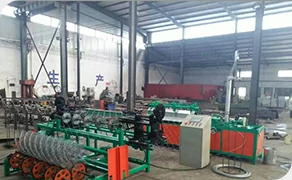 TEL:
+86-13102802206
TEL:
+86-13102802206
 Email:
fencenetting@china.com
Email:
fencenetting@china.com
 Language
Language
 TEL:
+86-13102802206
TEL:
+86-13102802206
 Email:
fencenetting@china.com
Email:
fencenetting@china.com
 Language
Language


The Ultimate Guide to Buying Window Screen Frames
When it comes to home improvement, ensuring that your windows are well-equipped with screens is vital for maintaining comfort and protecting against pesky insects. A well-fitted window screen not only enhances ventilation but also keeps your living space free from unwanted critters. If you're looking to buy window screen frames, this guide will walk you through everything you need to know.
Understanding Window Screen Frames
Window screen frames are the structures that hold the screen mesh in place. They come in various materials, sizes, and designs to suit different types of windows. The most common materials include aluminum, vinyl, and wood, each offering unique benefits. Aluminum frames are known for their durability and resistance to rust, making them an excellent choice for long-lasting use. Vinyl frames provide a more affordable option with decent longevity, while wooden frames offer a classic aesthetic for traditional homes.
Choosing the Right Size
Before purchasing a window screen frame, it's crucial to measure your windows accurately. Take the height and width of the window opening, and account for any obstructions or unique window designs. It’s advisable to measure multiple points, as windows can sometimes be slightly irregular. Most manufacturers offer standard sizes, but custom options are also available if you need a perfect fit.
Types of Window Screen Frames
There are several types of screen frames to consider
1. Fixed Frames These are stationary and are designed to remain in place. They're ideal for windows that are not frequently opened.
2. Retractable Frames Perfect for those who want flexibility, retractable screens can be pulled down or rolled away when not in use, providing a seamless view when the screen is not needed.
3. Hinged Frames These screens swing open, facilitating easy access to the window for cleaning or maintenance. They're a great choice for casement or double-hung windows.

4. Magnetic Frames Increasingly popular for their ease of use, magnetic screens attach to window frames with magnets, allowing for quick installation and removal.
Material Selection
When selecting your window screen frame, consider the environmental conditions in your area. Aluminum frames are generally preferred for their resilience against weather elements, while vinyl frames might be more suitable for less harsh climates. If aesthetics are a concern, wooden frames can add charm but require regular maintenance to prevent degradation.
Installation Process
Installing window screen frames can be a DIY project if you're handy. Most frame kits come with the necessary hardware and instructions. However, if you're unsure, hiring a professional can ensure a perfect fit and finish. Proper installation is crucial for performance, as even a small gap can allow insects to invade your home.
Maintenance Tips
Once your window screens are installed, maintenance is straightforward. Regularly check for tears or holes in the screen mesh and repair them promptly to maintain effectiveness. Cleaning the frames and screens with mild soap and water can prevent buildup and prolong their life.
Affordable Options
If you're on a budget, don't worry! Window screen frames can be quite affordable across various retail stores and online marketplaces. Look for seasonal sales or discounts, and consider purchasing frames in bulk if you need them for multiple windows. Often, local hardware stores can also provide cut-to-size options that can save you money.
Conclusion
Investing in quality window screen frames enhances your home's comfort, aesthetic appeal, and energy efficiency. By considering the type, material, size, and installation options, you can make an informed decision that meets your needs and preferences. Whether you choose a standard frame or opt for a customized solution, ensuring your windows are well-protected with screens is a smart move for any homeowner!